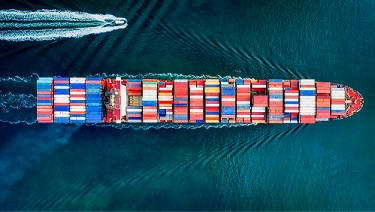
A new fellowship conducted by James Mason at Tyndall Manchester will investigate the real-time feasibility of optimised sailing routes to cut carbon in international shipping
1 December 2021
As pressure mounts for rapid action in the face of the global climate crisis, modern sail technology presents an opportunity for immediate action in the shipping sector.

Brought into the 21st Century through advances in computation and material science, ship owners can install these modern sails to work alongside their ship’s engine, providing propulsive power and cutting carbon emissions. Previous Tyndall Centre research highlights the potential for further advancement in the field: optimising the routes of these wind-assisted ships can amplify carbon savings by allowing the ship to deviate from its usual course to search for beneficial wind. However, current models are based around idealised routes and weather data, and further research is needed to understand how theorised carbon savings translate into a real-time operational environment.
The fellowship aims to build on previous research to estimate the potential of this emerging short-term sail technology on routes around the globe.
